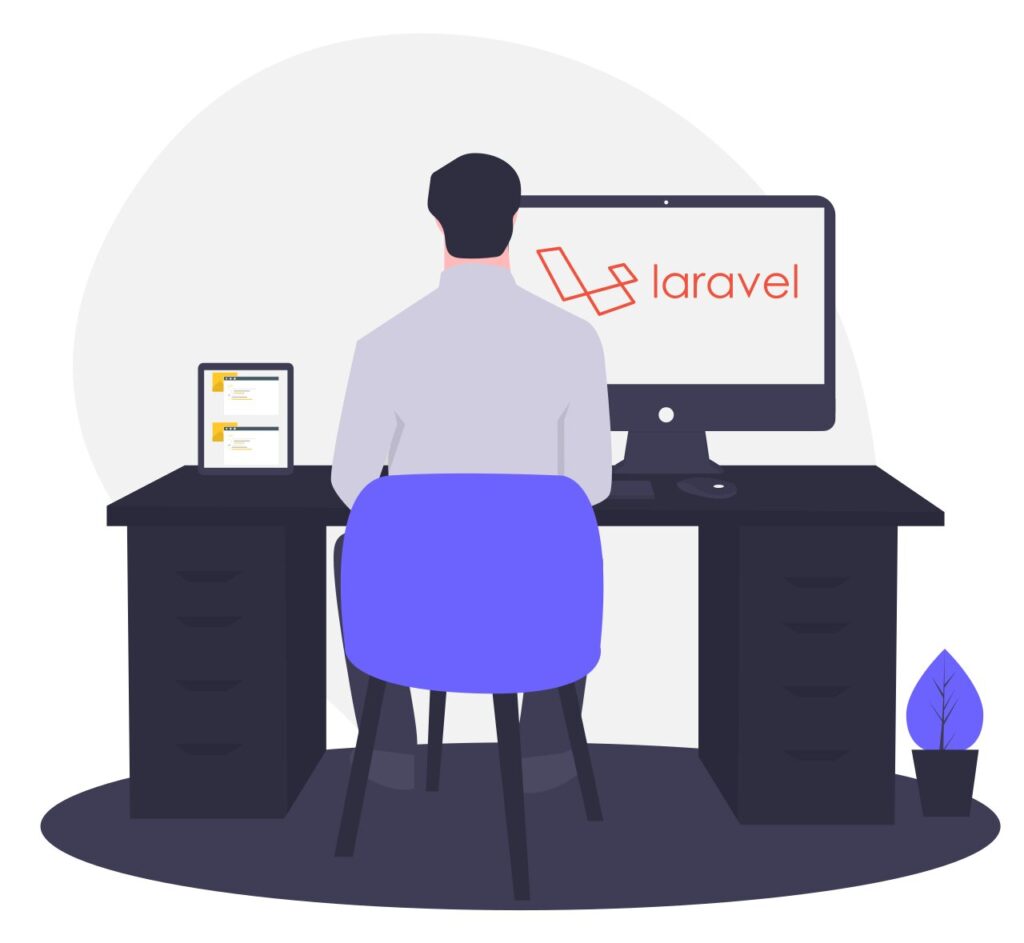
Two strong frameworks stand out in the field of developing contemporary commercial applications: Laravel and .NET. Both provide strong features for creating feature-rich, extensible, and secure web applications. They vary, nonetheless, in terms of nature, community support, development methodology, and technological stack.
This comprehensive guide explores the essential features of Laravel and .NET to assist companies in making well-informed development decisions. After going through this guide, businesses can employ Laravel development services or .NET services.
Introduction to Laravel and .NET
Laravel:
The open-source PHP framework Laravel is well-deservedly famous for its multifaceted and elegant feature set, easy-to-use syntax, and developer-friendly development environment. As it is built on the Model-View-Controller architecture, it is the best for the development of interactive web applications of orderly code. Developers like Laravel due to its comprehensive documentation, a continuous and helpful community that is building, and the built-in features like the Blade template engine and Eloquent ORM.
.NET:
Microsoft created .NET, a robust platform that is compatible with several languages, including C#. It facilitates the development of a wide range of applications, including cloud-based, mobile, web, etc. The development, evaluation, and proper deployment of applications across many platforms are among the objectives that are attained by the use of the .NET libraries, frameworks like ASP.NET, and tools like Visual Studio.
Technology Stack of Laravel and .NET
1. Laravel:
Language: PHP
Database: MySQL, PostgreSQL, SQLite, SQL Server
Template Engine: Blade
ORM: Eloquent
Testing: PHPUnit
Server Requirements: PHP, Composer
2 .NET:
Language: C#, Visual Basic, F#
Framework: ASP.NET Core, ASP.NET MVC
Database: SQL Server, MySQL, PostgreSQL, SQLite
ORM: Entity Framework Core
Testing: xUnit, MSTest
Server Requirements: .NET Core, Visual Studio
Development Approach of Laravel and .NET
1. Laravel:
Usability: Writing and maintaining code is made simple for developers by Laravel’s syntax and standards.
Quick Development: To expedite development, Laravel offers tools such as Artisan CLI that automate activities.
Community Assistance: Laravel enjoys a sizable and vibrant community that provides tools, bundles, and forum discussions for support.
Flexibility: Given Laravel’s modular architecture, developers can effortlessly include third-party modules and components.
2. .NET:
Integrated Development Environment: Visual Studio’s prowess in refactoring, debugging, and performance profiling is not to be underestimated. This comprehensive IDE is undoubtedly just right for .NET programming.
Cross-Platform Development: Through .NET Core, developers can be sure that their applications will run properly on Linux, macOS, and Windows.
Scalability: .NET is considered appropriate for distributed and scalable applications since it possesses a good design and offers support for cloud-based services.
Security: To ensure application security, .NET provides security capabilities including data encryption, authorization, and authentication.
Community and Ecosystem of Laravel and .NET
1. Laravel:
Community: A thriving ecosystem of developers, enthusiasts, and contributors actively participate in the growth and enhancement of Laravel.
Ecosystem: Laravel comprises packages such as Laravel Mix for frontend asset compilation, Laravel Horizon for task evaluation, and Laravel Nova for administration.
Learning Facilities: Laravel is accessible to developers of any level of expertise because of its tutorials, online courses, and documentation.
2. .NET:
Microsoft Support: Microsoft provides enterprise-level solutions, upgrades, and broad support for .NET.
NuGet Packages: A large collection of libraries and tools for improving application capabilities are available through NuGet, the package management for .NET.
Azure Integration: For cloud deployment, administration, and scaling, .NET easily interfaces with Microsoft Azure.
Certifications: To verify development skills, .NET provides certification programs such as Microsoft Certified: Azure Developer Associate.
Use Cases and Industry Adoption of Laravel and .NET
1. Laravel:
Content Management Systems: A lot of content-heavy websites, blogging systems, and WordPress substitutes are built using Laravel.
E-commerce: Laravel provides capabilities like product management, cart functionality, and payment system connectivity to support e-commerce systems.
Custom Web Apps: CRM systems, corporate solutions, and custom web apps can all be developed using Laravel.
2. .NET:
Enterprise Applications: ERP systems, HR management software, and customer portals are examples of enterprise-grade applications that are best developed with .NET.
Financial Services: .NET is used to create safe and legal applications in the banking, insurance, and financial industries.
Healthcare: Electronic Medical Records systems, telemedicine platforms, and healthcare apps are all powered by .NET.
Conclusion
For contemporary enterprises, Laravel website development and .NET both provide special advantages and functionalities. Given Laravel’s strong development speed, developer-friendly atmosphere, and robust community, it’s the perfect choice for content-focused apps, SMEs, and startups. However, .NET’s extensive ecosystem, cross-platform interoperability, and enterprise-grade capabilities meet the needs of complicated applications, large-scale endeavors, and sectors with strict security and compliance regulations.
In the end, a variety of considerations, including project objectives, developer experience, scalability requirements, and long-term strategic goals, will determine which of Laravel and .NET is best. Businesses can arrive at well-informed selections that are in line with their technical roadmap and commercial objectives by knowing the subtleties and advantages of each framework.
Another option is to partner with a Laravel development company or .NET development services provider for further assistance and guidance.

Author Bio:
Bhavik Shah is the founder and CEO of TechnoBrains, an IT company situated in Ahmedabad, India. He has 15 years of work experience in the IT industry and is committed to fostering innovation through technology and powering businesses with custom IT solutions. With a clear vision and an unwavering passion, he established TechnoBrains, which now stands as a leading provider of IT-related services to clients across the globe. He is a devoted tech enthusiast and a firm believer in the transformative potential of technology.